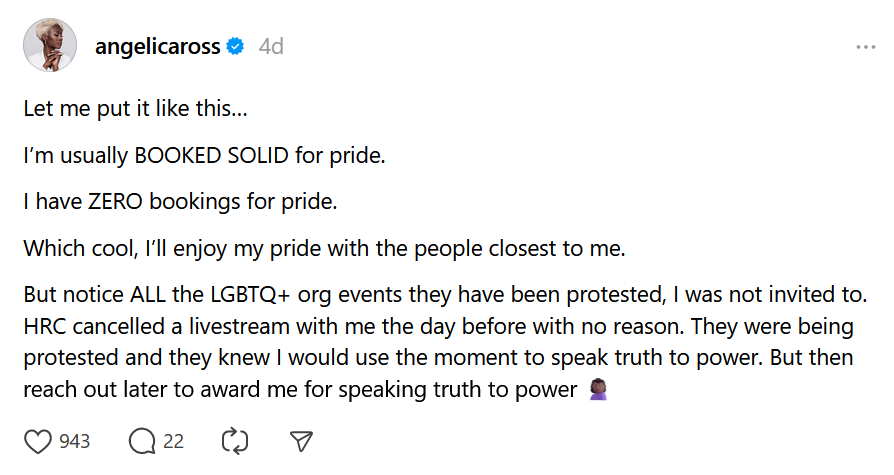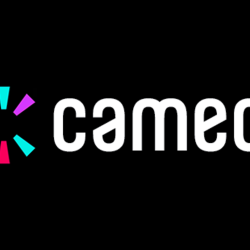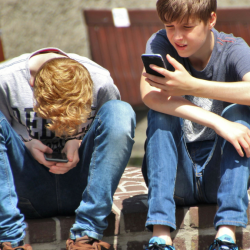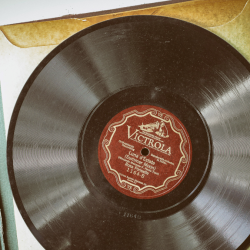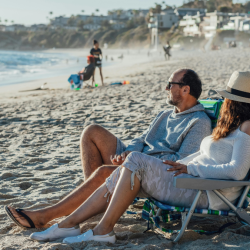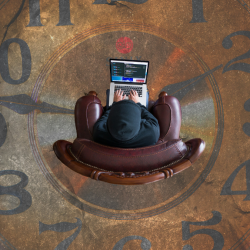June is Pride month, a time when brands roll out Pride month campaigns, rainbow logos and limited-edition Pride-themed merchandise.
This year, however, it’s remarkably quiet on the brand-ally front.
Many queer influencers and celebrities, like Pose and American Horror Story actor Angelica Ross, have noticed a distinct downturn in brand partnerships this year.
Fear of conservative backlash
In some ways, it’s not surprising that this year is quiet, since 2023’s Pride month was awash with controversy and boycotts. Most notable was the Bud Light backlash, which started because the brand partnered with trans influencer Dylan Mulvaney, resulting in a huge dip in sales.
Target, a long-time producer of Pride month merchandise, then removed multiple products from their stores after customers started throwing them on the ground. This year, we’re seeing the lasting result of this turnaround, and it’s not good.
Rise in anti-LGBTQ+ policies
At the same time as brands are quieting down their allyship, political anti-LGBTQ+ movements are gaining traction. Violence against LGBT+ people is on the rise in Europe.
There’s a rise in hate crimes in England and Wales. In 2023, 37 US states introduced over 142 bills to restrict gender affirming healthcare for trans people. Even symbols of allyship are being restricted. Florida banned rainbow lights on a bridge. Scottish Parliament staff have been banned from wearing rainbow lanyards.
It’d be laughable… if it wasn’t so scary.
Keeping their heads down
In this context, I suppose it makes sense that brands are wary. Why rock the boat during a cost-of-living crisis when everyone is spending less anyway? It’s financially safer to be quiet. And that’s the message we as queer people receive: we are supported when it is financially beneficial to do so, and disposable when it isn’t.
We’re still here, under political, cultural and sometimes physical attack, and brands won’t even put a rainbow on a mug to support us.
The problem with rainbow capitalism
None of this is a surprise. For years, many queer people have criticised brands for ‘rainbow capitalism’, for using queer allyship for financial benefit — promoting rainbows during Pride month, having floats at Pride parades, and then ignoring queer people the rest of the year.
And lo and behold, when the sales dip, the brands duck out. This isn’t what we wanted when we criticised rainbow capitalism. When we expressed frustration with these companies it was because we wanted them to walk the walk, to support queer people all year round (employees, customers, charities), instead of just implying that they did and profiting off the illusion. We didn’t think it was unreasonable to expect true allyship alongside the flag that promised it. Now, it seems, we get neither.
It may not seem like a big deal, but it is
As much cynicism as there is about rainbow capitalism, having minimal brand visibility during Pride month is way worse. It sets a worrying precedent: that queer allyship = conservative backlash = hurt sales, so it’s better not to be an ally.
And we really need allies right now. If people don’t see us they won’t see us as people like themselves, and that’s always scary.
Some brands are sticking around
Skittles just launched their Pride packs, donating $1 for each pride pack sold, up to $100K and matching donations up to $25K for GLAAD’s Pride campaign, partnering with GLAAD for the fifth year in a row. Levi’s has launched a Pride collection inspired by LGBTQ+ rodeo culture, modelled by queer artists like Orville Peck and Bronze Avery, with an annual $100,000 donation to Outright International.
It’s not many, but for those brands that continue to support queer people, to promote visibility, to donate to LGBTQ+ charities and support us year-round, I say thank you… for not giving in to ‘anti-woke’ sentiment. For recognising that we are people, under threat, who deserve the same rights as everyone else. For recognising that we deserve to feel proud.
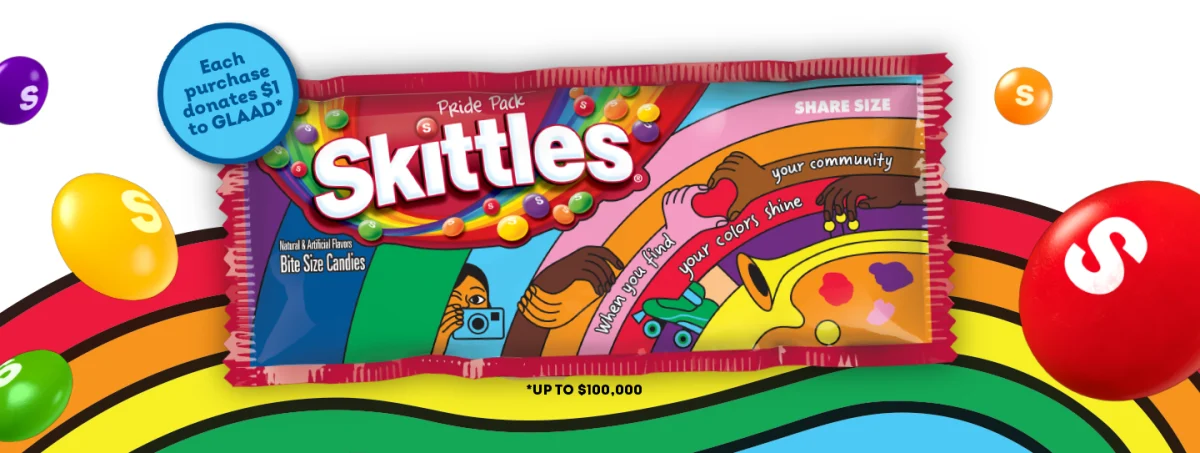
Featured image: Rosemary Ketchum / Pexels





















